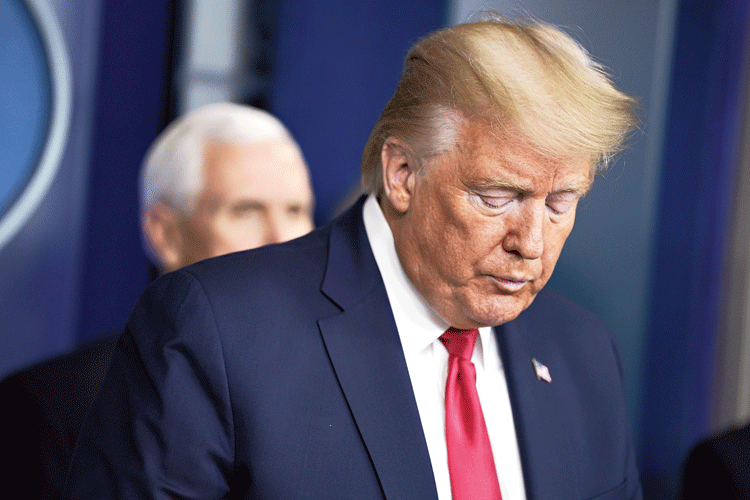At a long-winded White House briefing on Friday, President Trump enthusiastically and repeatedly promoted the promise of two long-used malaria drugs that are still unproven against the coronavirus, but being tested in clinical trials.
“I’m a smart guy,” he said, while acknowledging he couldn’t predict the drugs would work. “I feel good about it. And we’re going to see. You’re going to see soon enough.”
But the nation’s leading infectious disease expert, Dr Anthony S. Fauci, delicately — yet forcefully — pushed back from the same stage, explaining that there was only anecdotal evidence that the drugs, chloroquine and hydroxychloroquine, may be effective.
“The President feels optimistic about something, has feelings about it,” said Dr Fauci, director of the National Institute of Allergy and Infectious Diseases, emphasising that he was a scientist. “I am saying it may be effective.”
Trump’s boosterish attitude toward the drugs has deepened worries among doctors and patients with lupus and other diseases who rely on the drugs, because the idea that the old malaria drugs could work against the coronavirus has circulated widely in recent weeks and fuelled shortages that have already left people rushing to fill their prescriptions.
“Rheumatologists are furious about the hype going on over this drug,” said Dr Michael Lockshin, of the Hospital for Special Surgery in Manhattan. “There is a run on it and we’re getting calls every few minutes, literally, from patients who are trying to stay on the drug and finding it in short supply.”
The moment of discord between Trump and one of the nation's most trusted authorities on the coronavirus was a clash between opinion and fact. It threw Trump’s faith in his own instincts into conflict with the careful, evidence-based approach of scientists like Dr Fauci, who has held his position since the presidency of Ronald Reagan.
Trump appeared eager to sweep aside long-established standards for evaluating drugs in order to champion the remedy he favours.
The excitement about the drugs is based largely on reports from China and France that they seem to help patients. But researchers and Dr Fauci have stressed that the reports are not based on carefully controlled studies, which are the only way to be sure a treatment really works.
As word of the drugs’ possible effects have spread around the globe, demand has surged, with hospitals ordering the treatments in a desperate effort to treat severely ill patients. Two large generic manufacturers, Teva and Mylan, have said they are ramping up production of hydroxychloroquine, and Teva has said it will donate millions of pills to the US government.
The sole manufacturer of chloroquine, Rising Pharmaceuticals, has also said it is increasing production. In addition, the German company Bayer announced this week it was donating millions of pills of chloroquine to the US government and would seek approval from the FDA for its products to be used in the US.
Hydroxychloroquine is especially important for people with lupus, which can be life-threatening, Dr Lockshin said. The drug can lower the risk of dying from lupus and prevent organ damage, and is considered the standard of care. If patients stop taking it after using it regularly for a long time, they can gradually become quite ill.











